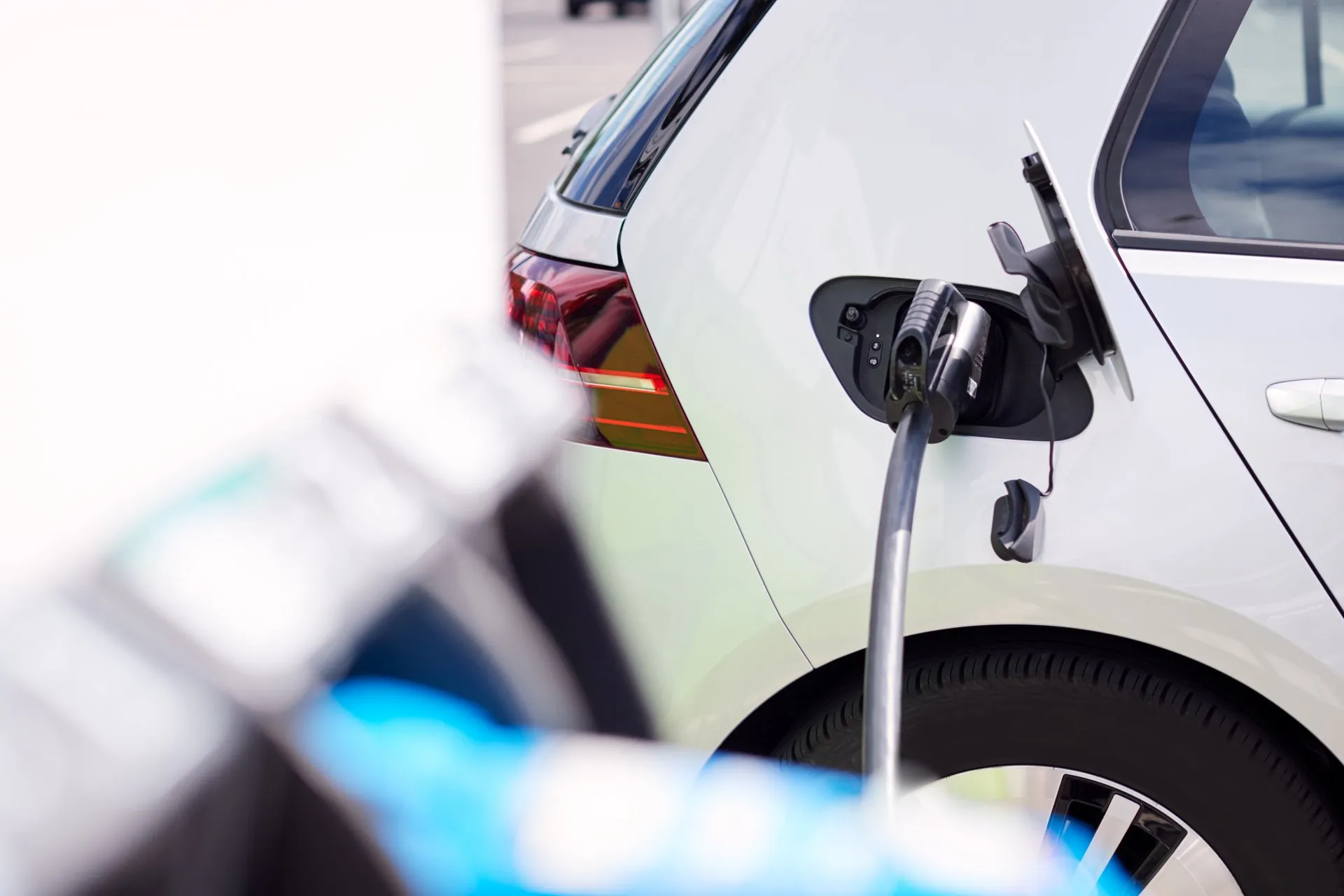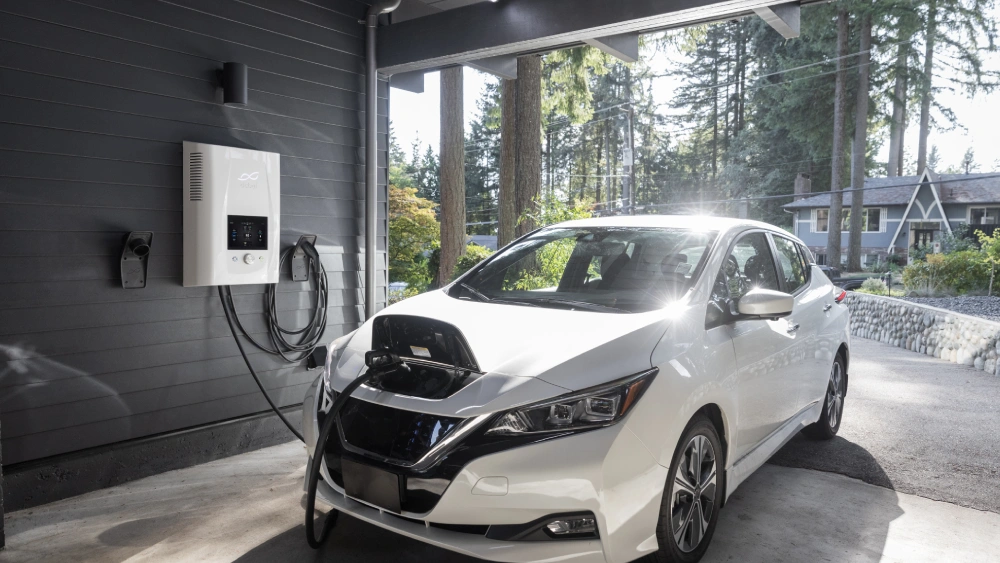Call us 647-871-7950
EV CHARGING

EV CHARGER INSTALLATION AND SERVICE
If you own an electric vehicle and you'd like the convenience and safety offered by an EV home charging station, talk to the electrical experts at Emanuel Electrical. We offer a selection of the most advanced, fully featured charging systems available, and provide professional residential electric vehicle supply equipment (EVSE) installation and service
What Is an EVSE Charger?
EVSE chargers supply electric energy to recharge electric vehicles. There are three levels of electric vehicle charging devices:
Level 1 Charger
Comes standard with most electric vehicles and is plugged into any normal three-prong outlet. While the Level 1 charger requires no installation, it charges vehicle batteries very slowly. Level 1 EVSE chargers are best suited for overnight use, and can take 20 hours or more to fully charge your car’s battery.
Level 2 Charger
This more advanced EVSE charger requires its own dedicated 240-volt circuit, which needs to be professionally installed in your garage. Level 2 chargers work much faster, fully charging an EV in about three hours. A growing number of EV manufacturers are now including a Level 2 charger standard with each new car purchase.
Top 4 EV Chargers level 2 in 2022
1) Grizzl-E Classic Charger – Level 2 EV Charging Station (16-40 Amp)
2) ChargePoint Home Flex – Level 2 EV Charging Station (16-50 Amp)
3) Wallbox Pulsar Plus – Level 2 EV Charging Station (48 Amp, 11 kW)
Level 3 Charger
This is the standalone device you see at public charging stations. It can add 257 Km of driving range to an EV’s batteries in about half an hour. However, beyond being prohibitively expensive, they have an industrial-level power draw that makes them unavailable to homeowners. If you own or work at an industrial building, it is possible to have a Level 3 charger installed there.
Which type of EVSE charger is the right choice for you? It depends on your driving habits. Many EV owners get by with plugging in their cars for an overnight charge. But if you frequently find yourself needing to recharge your EV midday, having a Level 2 charger installed is a smart investment.

EV Charger Station Installation
When you decide to have a Level 2 charger installed in your garage, here’s what you can expect from Emanuel Electrical:
- Full inspection of all equipment prior to installation.
- Site inspection to ensure equipment is installed in accordance with manufacturer specifications.
- Electrical system upgrade, including new dedicated 40-amp, 240-volt circuit with 8-AWG wiring to support the quicker-charging Level 2 charger.
- Your licensed electrician from Emanuel Electrical will install your EVSE equipment to conform to all National Electrical Code and local permit/code requirements.
- Start-up inspection performed to verify equipment is functioning properly in its operational environment.
- Complete EVSE information provided to customer on equipment features, correct usage, limitations, necessary maintenance, and warranty terms.
FAQs: Electric Vehicle EV Chargers
- How much current (amperage) will the electric vehicle electric vehicle EV need to charge?
- What is the capacity of your existing electrical service panel (e.g., 100-Amp, 200-Amp, etc.)? Note that a 400-Amp service panel is considered an “uncommon upgrade”.
- Is there a 240-volt circuit installed and available to be used?
- Is there room in the electrical service panel for a new 240-volt circuit breaker (it must be double-pole)?
- Where will the charging station be installed?
Hiring a certified electrician to install your electric vehicle EV charger will make the whole process much easier. They’ll explain what you’ll need to get started and how to get everything approved.
Though all electric vehicle EVs use the same standard plugs for Level 1 and Level 2 charging, standards for the DC charging may vary among manufacturers and regions.
- A typical electric car (60kWh battery) takes just under 8 hours to charge from empty-to-full with a 7kW charging point.
- Most drivers top up charge rather than waiting for their battery to recharge from empty-to-full.
- For many electric cars, you can add up to 160 Km of range in ~35 minutes with a 50kW rapid charger.
- The bigger your car’s battery and the slower the charging point, the longer it takes to charge from empty to full.
.
Technically you can connect your Tesla to a standard 110v plug receptacle with the free adapter that comes with the car. But you can only charge slowly–at about 5 Km of range per hour parked. … It will take up to 4 full days to fully recharge an empty Tesla car battery using a regular wall outlet.
In general, you should not charge your electric car every night. It isn’t necessary in most cases. The practice of charging an electric vehicle every night can shorten the lifespan of the car’s battery pack.
Our electrician can obtain any necessary permits for you whether you’re in the city or in the suburbs. Residential PEV chargers can run off of 120-volt or 240-volt power, depending on the styles of the chargers. … Level 1 electric vehicle supply equipment (EVSE) are installed as an outlet or a charging station.
Charging the car fully does not degrade the battery unless you were to keep it at 100% all the time. So, where possible, only charge to 100% if you really need it.
WHATEVER TYPES OF QUESTIONS YOU’LL HAVE, FEEL FREE TO GET IN TOUCH WITH US AND ADDRESS THEM!
